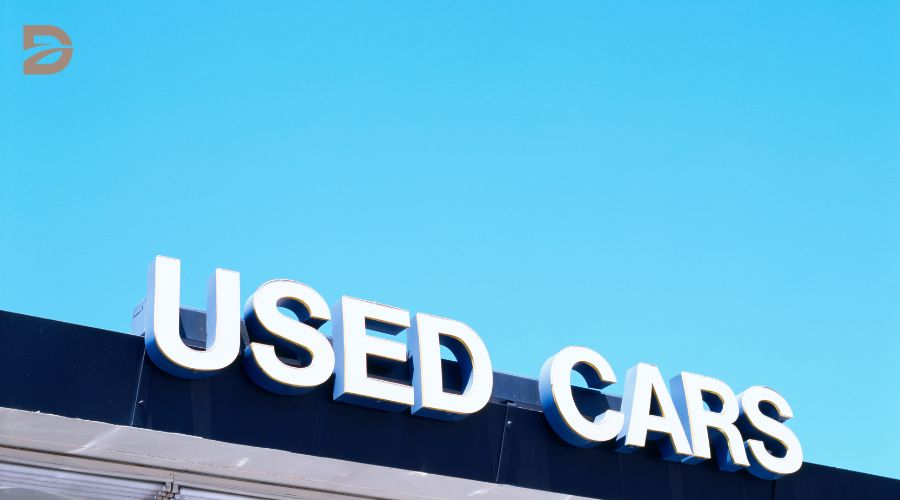Are you aware that a car’s resale value can drastically impact your overall return on investment? By understanding the factors that influence a vehicle’s market value, you can take proactive steps to maintain and present your used car in the best possible light when it’s time to sell or trade it in.
Maximizing your used car’s value requires more than just crossing your fingers and hoping for the best. It’s about being informed, strategic, and proactive in your approach. So, let’s dive in and explore the key elements that can help you maximize your vehicle’s resale value.
Key Takeaways
- Understand the factors that determine a car’s resale value, including make, model, condition, mileage, age, modifications, and color.
- Adopt proactive maintenance and care habits to preserve your vehicle’s condition and appearance.
- Consider thoughtful upgrades that can enhance your car’s value, while avoiding modifications that may negatively impact it.
- Maintain thorough documentation of your vehicle’s service history and take high-quality photos to showcase its condition.
- Prepare your car for sale or trade-in by addressing minor repairs, detailing it thoroughly, and using online valuation tools to get the best possible price.
Factors Affecting a Car’s Resale Value
When it comes to maximizing the resale value of your used car, several key factors come into play. Understanding these elements can help you make informed decisions and get the best possible price when it’s time to sell.
Make and Model
Not all cars are created equal, and some models inherently have a higher resale value than others. Luxury vehicles, SUVs, and popular mainstream models often retain their make and model resale value better than less desirable or niche vehicles.
Condition
The condition of your car is a significant factor in determining its vehicle condition impact on resale value. Well-maintained, regularly serviced cars with a clean history tend to fetch higher prices from potential buyers.
Mileage and Age
Both the mileage and age depreciation of a car play a crucial role in its resale value. Generally, the lower the mileage and the younger the vehicle, the higher the resale value.
Modifications
Aftermarket modifications can have a mixed impact on a car’s resale value. While some enhancements like performance upgrades or advanced safety features may increase the value, others like custom paint jobs or non-standard accessories may actually decrease it.
Color
Believe it or not, the car color resale value can also influence a vehicle’s resale price. Common, neutral colors like black, white, and silver tend to be more desirable and easier to sell than more unique or bold color choices.
Maximizing Used Car Value: Tips and Strategies
Maintaining the condition and value of a used car requires proactive care and attention. By avoiding smoking or eating in the vehicle, car owners can prevent unpleasant odors and stains that can lower the car’s resale value. Additionally, keeping pets off the upholstery is crucial to preserve the interior’s pristine condition.
Being Thoughtful with Upgrades
When considering modifications or upgrades, it’s important to be thoughtful and choose enhancements that are likely to increase the car’s appeal to potential buyers. Thoughtful car modifications can boost the vehicle’s value, while unnecessary or poor-quality upgrades may actually detract from it.
Keeping Thorough Documentation
Maintaining detailed service records and documentation can reassure buyers about the vehicle’s condition and history. By maintaining service records, car owners can demonstrate the car’s well-cared-for state, which can positively impact its resale value.
Making Necessary Repairs
Before selling a used car, it’s essential to address any minor repairs that may have been neglected. Addressing these issues can enhance the vehicle’s overall appearance and functionality, ultimately leading to a higher resale value.
Thoroughly Cleaning the Vehicle
A well-maintained and professionally detailed car can make a significant difference in its perceived value. Thorough cleaning of the interior and exterior, including the engine and undercarriage, can showcase the car’s true condition and appeal to potential buyers.
Taking High-Quality Photos
When listing a used car for sale, high-quality car photography can make a lasting impression on potential buyers. Capturing the vehicle’s best angles and highlighting its features can help create an effective sales listing and increase the chances of a successful transaction.
By implementing these strategies, car owners can maximize the value of their used vehicles and ensure a smooth and profitable sales process.
Selling Your Used Car: Trade-in or Private Sale?
When it comes to selling your used car, you have two primary options: trading it into a dealership or selling it privately to a buyer. Each approach comes with its own set of advantages and considerations.
Trading in your vehicle to a dealership can be a convenient choice, as they handle the entire process from appraisal to paperwork. The dealer appraisal process typically takes 15-30 minutes and factors in the car’s make, year, condition, and mileage to determine the offer. However, dealerships generally offer a lower price compared to a private sale, as they need to account for their own profit margin when reselling the vehicle.
On the other hand, selling your car privately can potentially yield a higher sale price, as you’re cutting out the middleman. This option, however, requires more effort in terms of creating an advertisement, communicating with potential buyers, and ensuring a secure payment and transfer of ownership. Luxury and vintage cars often fetch a high price when sold independently, while trucks and SUVs are in high demand among private buyers.
Ultimately, the decision between a trade-in or private sale depends on your priorities. If convenience is your top concern, a trade-in may be the better choice. But if you’re focused on maximizing value, a private sale could be the way to go. Understanding the factors affecting your car’s resale value can also help you make an informed decision.
| Factors | Trade-in | Private Sale |
|---|---|---|
| Convenience | High | Low |
| Potential Value | Lower | Higher |
| Negotiation | Less Flexibility | More Flexibility |
| Tax Benefits | Possible | None |
Ultimately, the choice between a trade-in or private sale depends on your personal priorities and the unique circumstances surrounding your used car sale.
Preparing Your Car for Sale or Trade-In
Before you list your used car for sale or take it to a dealer for a trade-in, it’s essential to prepare the vehicle to maximize its appeal and value. By addressing minor repairs, investing in professional detailing, and utilizing online valuation tools, you can ensure you get the best possible price for your car.
Addressing Minor Repairs
Fixing dents, dings, or scratches on the exterior of your car can significantly improve its appearance and perception of its overall condition. Initial miles of a car can see a significant drop in value of $5,000 to $10,000, averaging to about $1.50 to $3 per mile. As the car accumulates more mileage, the depreciation rate can slow down to about $0.25 to $0.50 per mile. By addressing these minors preparing cars for sale or trade-in, you can enhance the car’s value and make it more appealing to potential buyers.
Detailing: The Devil’s in the Details
Professional detailing, which includes a thorough cleaning of the exterior and interior, can also boost your car’s value. Exterior issues like dents, dings, and scratches, when repaired, can improve the car’s appearance and lead to a higher selling price. Detailing services can enhance a car’s resale value by polishing exterior scratches and applying protective products to maintain the paintwork. Thorough interior cleaning, including sweeping, shampooing, and conditioning, can eliminate odors and make the car more appealing to potential buyers.
Online Valuation Tools
Utilizing online valuation tools provided by services like Kelley Blue Book and the National Automobile Dealers Association can give you a better understanding of your car’s current market value. These tools use a combination of sources, including wholesale auctions and retail transactions, to provide an actual cash value (ACV) that reflects what a buyer would reasonably pay for the car given its current condition. Comparing estimates from different valuation services can give you a more comprehensive understanding of your car’s worth, helping you negotiate a fair price with a dealer or private buyer.
| Valuation Tool | Key Features | Advantages |
|---|---|---|
| Kelley Blue Book | Comprehensive car valuation based on make, model, year, mileage, and condition | Widely recognized and trusted industry standard |
| NADA Guides | Detailed valuations for new and used vehicles, including trade-in and retail prices | Specific to the U.S. automotive market |
| Edmunds | Provides appraisal values for both private party and dealer trade-in | Offers a more comprehensive comparison of selling options |
| CarMax | Guaranteed purchase offer for your vehicle based on its condition | Convenient, fast, and hassle-free trade-in process |
By addressing minor repairs, investing in professional car detailing, and utilizing online valuation tools, you can ensure your used car is in the best possible condition and priced competitively when it’s time to sell or trade it in.
Conclusion
In summary, maximizing the value of your used car involves considering a variety of factors, from the vehicle’s make and model to its overall condition, mileage, and even color. By taking proactive steps to maintain the car, make necessary repairs, and present it in the best possible light, you can potentially increase its resale value when the time comes to sell or trade it in.
Additionally, understanding the differences between trading in a car to a dealer versus selling it privately can help you make the best decision for your specific needs and goals. Whether you choose to trade it in or sell it yourself, following the tips and strategies outlined in this article can ensure that you get the most value out of your used car.
The key takeaways are to keep your car well-maintained, clean, and thoroughly documented, and to consider the market demand and timing when it’s time to part ways with your vehicle. By doing so, you can maximize the return on your investment and get the best possible value for your used car.
FAQ
What factors affect a car’s resale value?
The main factors that affect a car’s resale value include its make and model, condition, mileage and age, modifications, and color.
How can I maximize my used car’s resale value?
To maximize your used car’s resale value, you should avoid smoking or eating inside the vehicle, keep pets off the upholstery, be thoughtful with any upgrades or modifications, keep thorough documentation of the car’s service history, make necessary repairs, thoroughly clean the interior and exterior, and take high-quality photos for the sales listing.
Should I trade in my car or sell it privately?
Trading in your car to a dealership typically yields a lower financial return, but it offers convenience and potential tax benefits. Selling your car privately can result in a higher sale price, but it requires more effort in creating an advertisement, communicating with potential buyers, and ensuring secure payment and transfer of ownership.
How can I prepare my car for sale or trade-in?
To prepare your car for sale or trade-in, you should address any minor repairs, such as fixing dents, dings, or scratches, and utilize professional detailing services to enhance the car’s appearance and condition. Additionally, using online valuation tools can help you understand your car’s current market value, allowing you to negotiate a fair price with a dealer or private buyer.











